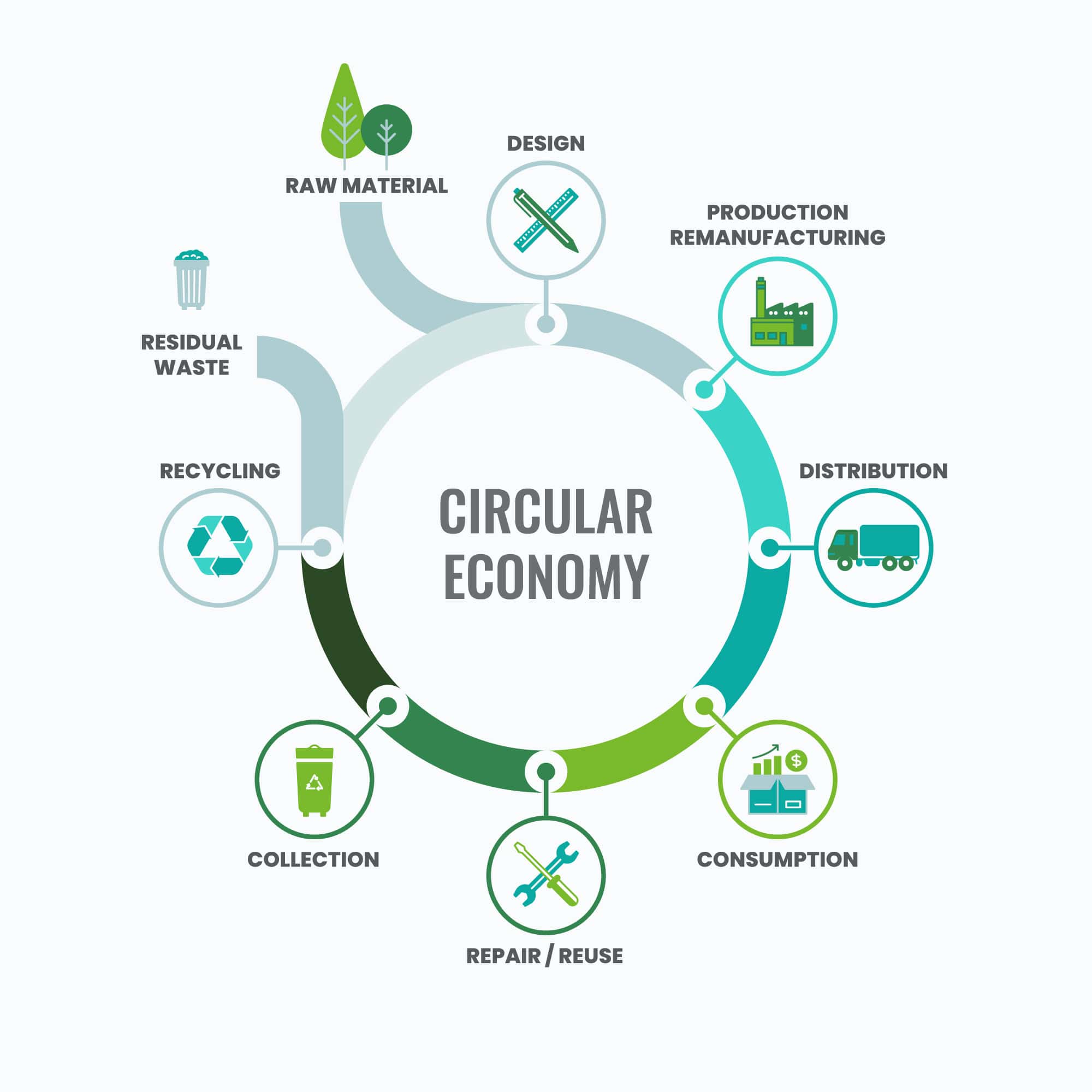- Phone: 306-970-1552
- connect@gentleprocessing.ca
- 18-301 South Industrial Dr. Prince Albert, SK S6V 7L7, Canada

In today's world, sustainability has become a paramount concern across various industries, and the food processing sector is no exception. As we grapple with issues such as climate change, resource scarcity, and environmental degradation, it's crucial to adopt a sustainable approach to food processing that aligns with the principles of the circular economy.
The circular economy is a regenerative system that aims to minimize waste and make the most of resources. Unlike the traditional linear economy, where products are made, used, and discarded, the circular economy promotes the continuous use, recycling, and repurposing of materials. This concept is highly relevant to food processing.
The food industry is a significant player in the global economy, and it has a profound impact on the environment. From agriculture and food production to packaging and distribution, every aspect of the food supply chain can benefit from circular economy principles.
One of the most pressing challenges in the food processing industry is food waste. Millions of tons of food are wasted each year, from farm to fork. Embracing the circular economy can help tackle this issue.
At the farm level, adopting practices such as precision agriculture and sustainable farming can reduce the overproduction of food and minimize waste. These practices focus on optimizing resource use and reducing the environmental footprint of agriculture.
In food processing facilities, efficient use of raw materials is crucial. By implementing technologies that maximize yield and reduce waste, such as advanced processing methods and by-product utilization, we can minimize losses and make the most of every ingredient.
Packaging plays a vital role in food processing, but it often contributes to waste and pollution. Circular economy principles can revolutionize food packaging.
The use of biodegradable and compostable materials for packaging can reduce the environmental impact. These materials break down naturally, reducing the burden on landfills and oceans.
Implementing recycling programs for packaging materials can ensure that they re-enter the supply chain as valuable resources. Additionally, designing packaging for reuse can significantly cut down on waste generation.
In the circular economy, products are designed with the end in mind. This means considering how a product can be disassembled, recycled, or repurposed at the end of its life cycle.
Food processing can generate by-products that are often discarded. However, these by-products can be upcycled into valuable ingredients for other products, reducing waste and creating a closed-loop system.
Adopting renewable energy sources in food processing facilities not only reduces greenhouse gas emissions but also aligns with the circular economy's goal of sustainable resource use.
Embracing the circular economy in food processing isn't just about environmental responsibility; it also makes good business sense.
Efficient resource use, reduced waste, and sustainable practices can lead to significant cost savings in the long run. Companies that minimize waste are often more profitable.
Consumers are increasingly conscious of the environmental impact of their food choices. Brands that demonstrate a commitment to sustainability can gain a competitive edge and attract eco-conscious consumers.
As we confront the challenges of a rapidly changing world, adopting a sustainable approach to food processing is not an option; it's a necessity. The circular economy offers a roadmap for reducing waste, conserving resources, and minimizing environmental impact in the food industry. By implementing circular economy principles, we can create a more resilient and sustainable food system for future generations.
Incorporating circular economy practices into food processing is a win-win scenario. It not only benefits the environment but also strengthens the bottom line. As we move forward, let's prioritize sustainability and work towards a more circular and prosperous food processing industry.